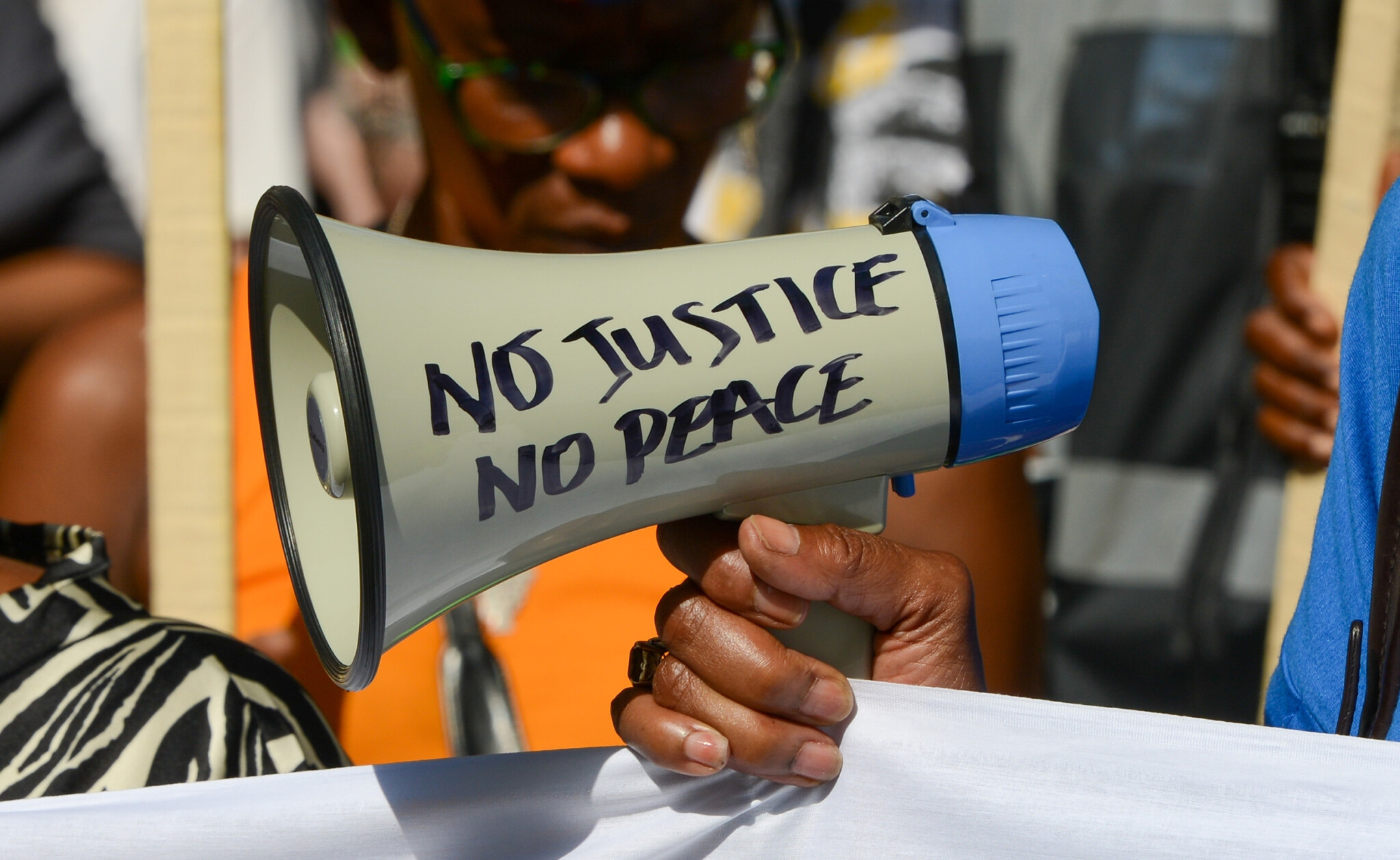An asylum seeker in the UK has murdered a young woman named Rhiannon Skye Whyte who worked at the asylum hotel where he was housed. Media reports that the perpetrator is a “teenager”, a claim which carries no credibility, since migrants routinely pretend to be younger than they are in order to obtain free shelter in European states. Deng Chol Majek stabbed Rhiannon Whyte in the neck with a screwdriver, seemingly following a dispute over a packet of biscuits. Days before, the death of Natalie Shotter was in the British news after courts found that – and I advise my readers that the following detail is distressing – she was raped to death while unconscious on a London park bench by homeless sex offender Mohamed Lidow, of unclear origin. In August, charity worker Sam Winter, roundly praised by those who knew him for his kindness, was assaulted on the stairs of the London Underground and succumbed to his injuries later that week. His attacker, Rakeem Miles, has been charged not with murder but with grievous bodily harm. Few details about Miles or his motive are publicly available, but it goes without saying that there are very few native British Rakeems.

Stories of such senseless violence are distressingly common in Europe. Establishment media and political talking-heads don’t like to acknowledge it, but the names of perpetrators are frequently foreign. Take this summary of a single day’s activity at the Old Bailey, the Central Criminal Court of England and Wales, in May of this year: gruesome murders by Lidow, Mohamed Nur, Denzel Kwarteng, and Bamidele Fawehinmi were all cases of interest on the same day. Why are we not permitted to notice the common theme here?
The names Rhiannon Whyte, Natalie Shotter, and Sam Winter likely mean nothing to the average British newsreader who is bombarded with these stories on a weekly basis and who would be forgiven for trying to forget the details as soon as they have read them. But their names should be remembered. They should be household names, not only in honor of their lives but to serve as a warning. They are emblems of the irresponsibility of a British State which opens its borders and then denies its own role in the resulting breakdown in law and order.
Enjoy independent, ad-free journalism - delivered to your inbox each week
The name Chris Kaba, on the other hand, has been difficult to ignore in Britain. Two weeks ago, police officer Martyn Blake was found not guilty of murder, having shot Kaba dead in September 2022 as he rammed into several police cars in an attempt to escape arrest. Owing to the risk that Kaba was armed – his arrest followed his involvement in a shooting the previous day – and the reckless violence of his resistance, Blake made the decision which many of his fellow officers said they would have made: he fired a shot in the dark. Predictably, UK media has amplified complaints that this decision is a “failure” for “all those affected by police violence”. Kaba’s martyrdom is despite the revelation that, just days before his death, Kaba shot a rival gang member in a packed nightclub. Campaigners have even adopted the slogans of American race activists by claiming that in Britain, police are “above the law”, as though Kaba’s actions didn’t imply that he believed himself to be above the law. Like George Floyd, he has been martyred by the Left because of his race. Like Floyd, Kaba was not “murdered”. Yet these cases haunt the Anglosphere’s news cycle for years at a time, while the names of Natalie Shotter, Rhiannon Whyte, Sam Winter, Jack Merritt, Saskia Jones, and countless others go forgotten after brief spells of justified outrage. Many of my readers likely don’t recognise the last two names I just mentioned. Saskia Jones and Jack Merritt were the young volunteers who were stabbed to death by Islamist terrorist Usman Khan during his attack on London Bridge in 2019. Both were attending an event on prisoner rehabilitation at the nearby Fishmongers’ Hall; their murderer had recently been released from jail. He had been imprisoned for planning to establish a terrorist training camp in Pakistan. Words do no justice to the sheer treachery of the attack, which was ultimately allowed to happen by the British State, whose lax treatment of state enemies would never be dreamt of by nations like Pakistan itself. Yet the names of Saskia Jones and Jack Merritt have faded into the mass of untold victims of hostile actors who penetrate British shores at the expense of the British State only to operate against British interests.
Kaba’s name has eclipsed these victims’ names because, to put it simply, he fits the narrative which the UK and much of Europe has inherited from the US: That police are racist brutalists, and their victims are martyrs for the perpetual cause of Civil Rights activism. Without that narrative, the Left has no momentum, no fuel for its unthinking anger and disruptive battle for so-called “social justice”. Like the US – and perhaps because of the US – the UK is replete with disaffected Leftists who latch onto cases like those of Kaba while denying that any perceived victim of the White Supremacist superstructure, like migrants with darker skin than theirs, could possibly be a perpetrator of injustice. Kaba’s name has eclipsed these victims’ names because they were native Britons murdered by foreign men, many of whom have benefitted from the utopian (here a synonym with “dystopian”) asylum system, rather than by white police. The Left establishment does not even honor their sacrificial lambs – slaughtered before the altar of diversity – with the dignity of acknowledgement. Instead, the Labour government is planning to continue receiving migrants who arrive at British shores on small boats – their origins, ages, and motivations unknown – for another decade, with no regard for the risk this poses to law and order.
Perhaps the most perverse aspect of the cases I have discussed (which make up a minuscule portion of annual migrant-perpetrated crime) is that the victims are so often people who are simply trying to help. With almost improbable frequency, they are charity workers who only wanted to improve the lives of others. The grim irony is that they were betrayed by a State which, in the pursuit of increasingly cheap labour and international prestige, postures as a kind of unlimited charity whose beneficiaries could never conceivably act out of malevolence or selfishness. But charity workers on the ground know more than anyone that those whom they want to help are not always honest and upstanding. They often refuse help – sometimes they even bite the hand that feeds them. A State must operate on this wisdom; otherwise, it will run out of capacity to extend charity to its own citizens, let alone an endless wave of migrants from unstable source countries. At the very least, a State must take responsibility for the cultural disintegration and violent crime over which it presides.




Comments (0)
Only supporting or founding members can comment on our articles.